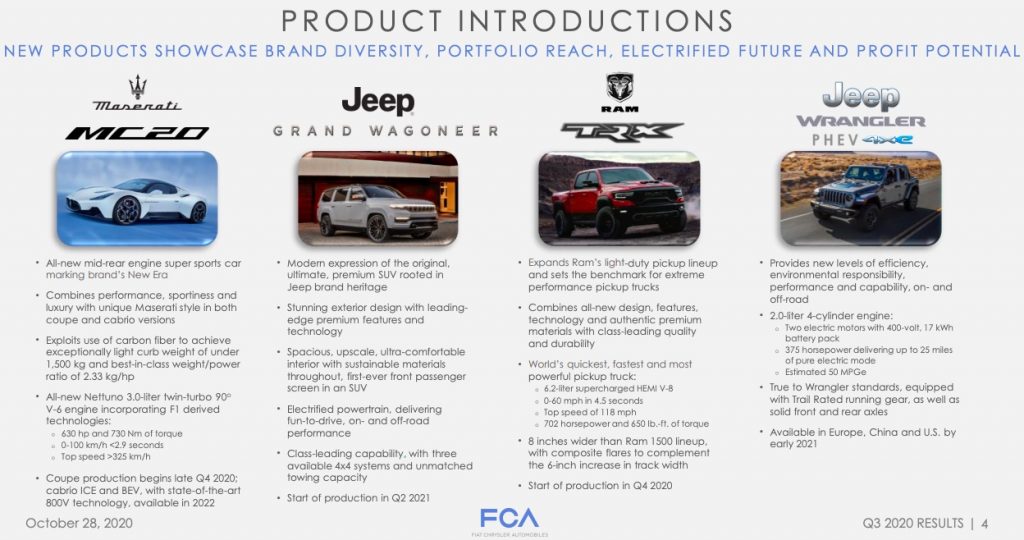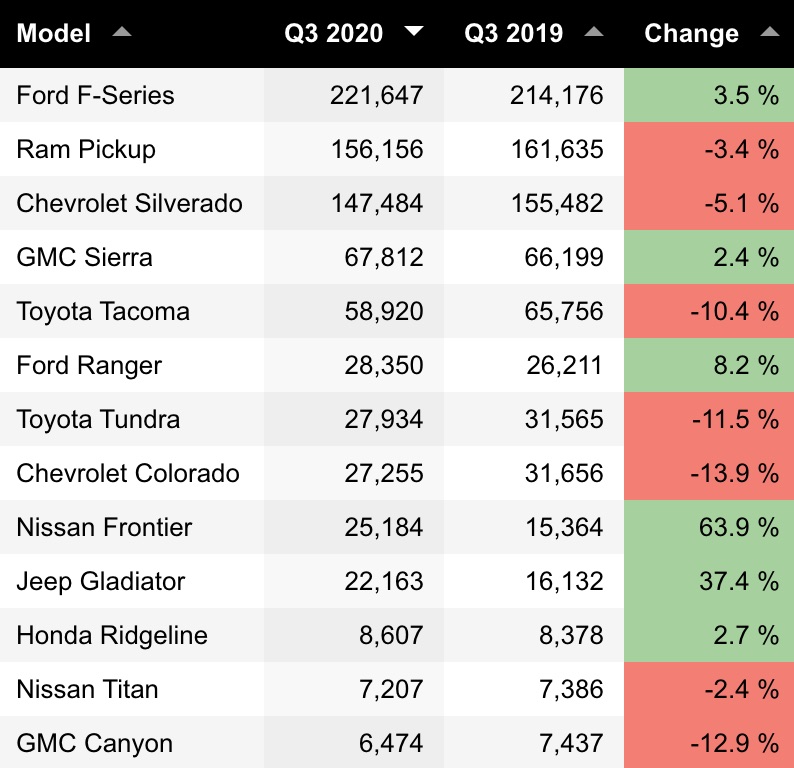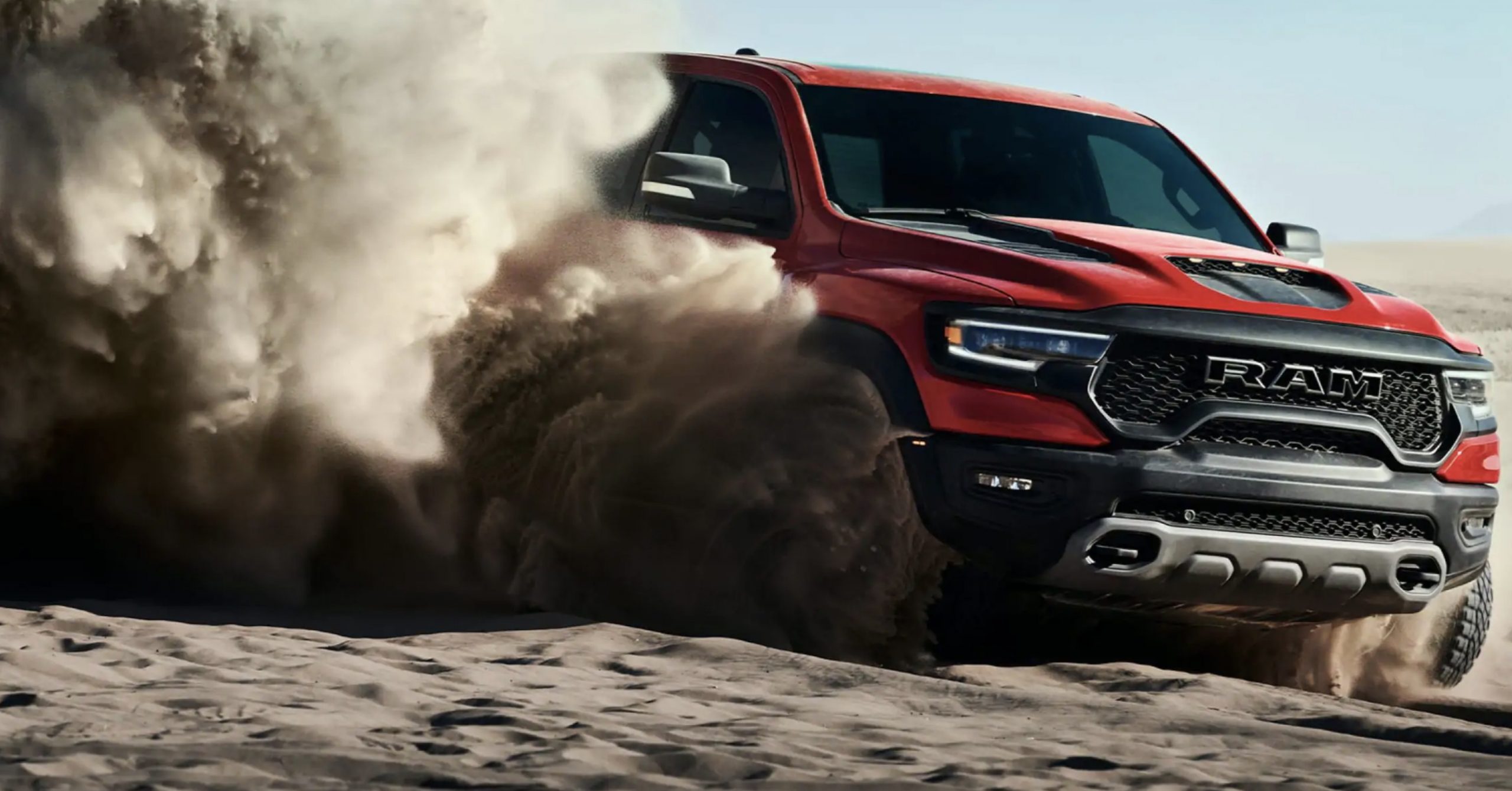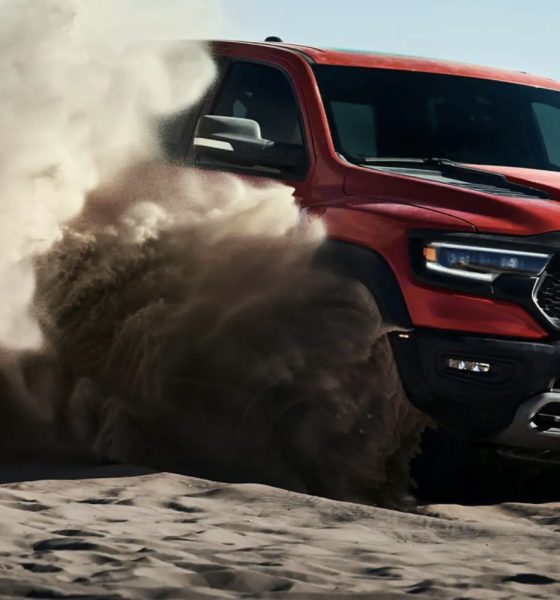Fiat Chrysler CEO Mike Manley hinted at an electric Ram pickup truck in the legacy automaker’s future. According to the Detroit Free Press, Manley did not offer any other details about Fiat Chrysler’s potential electrified Ram pickup, but he did note that such a vehicle will be coming.
“I do see that there will be an electrified Ram pickup in the marketplace, and I would ask you just to stay tuned for a little while, and we’ll tell you exactly when that will be,” Manley said during Fiat Chrysler Automobiles (FCA) Q3 earnings conference.
Manley’s recent statements hint at a bolder stance on electrification since in the second quarter. During FCA’s Q2 earnings call, Manley remarked that “Obviously, pickup trucks is a key franchise for us, and we’re not going to sit on the sideline if there is a danger that our position gets diluted going forward.”
Several automakers, from veterans like Ford and General Motors to newcomers like Tesla and Rivian, are going all-in on the electric pickup truck market. So far, GM has unveiled the gargantuan GMC Hummer EV, Ford has all but confirmed the work-focused F-150 Electric, Tesla has unveiled its futuristic Cybertruck, and Rivian is coming with the R1T, a luxury-adventure vehicle optimized for the outdoors.

FCA introduced two Jeep vehicles in its Q3 presentation that showed the steps it took toward electrifying its lineup, such as the Jeep Grand Wagoneer and Jeep Wrangler PHEV. Neither of the Jeep variants were all-electric. It seems FCA, at least for now, is taking baby steps towards an electric future, but everyone needs to learn to crawl before walking.
The Jeep Wagoneer will have an electrified powertrain, which does not make it an all-electric vehicle, though it does show some progress on FCA’s part. The electrified Jeep Wagoneer’s production will start in Q2 2021.
Then there is the Jeep Wrangler PHEV 4Xe, which seems like a more serious step toward electrifying the company’s fleet. It will have a 2.0-liter 4-cylinder engine like any traditional ICE vehicle, but the Wrangler PHEV will also be equipped with two electric motors with 400-volt and a 17kWh battery pack. The 17 kWh battery pack is expected to provide the vehicle with 25 miles of all-electric range.
Fiat Chrysler’s steps to electrify two Jeep variants may be a stepping stone toward the electrified Ram pickup truck. He did not specify if the electrified Ram would be all-electric, though given the current trend in the pickup market with the Tesla Cybertruck, Rivian R1T, and most recently, the GMC Hummer EV, it may be a missed opportunity if Fiat does not release an all-electric pickup truck.

Perhaps Fiat could turn to Tesla for inspiration or advice if it were planning to produce an all-electric Ram truck. After all the two companies are not exactly strangers. Fiat Chrysler, together with General Motors, has been buying regulatory credits from Tesla. Tesla’s regulatory credits help the FCA meet the European Union’s strict emissions regulations.
Tesla and the FCA’s deal proved fruitful nearly a year later in April 2020 when the International Council on Clean Transportation (ICCT) announced the partnership made up 39% of total EV registrations in Europe. From that achievement alone, FCA must have a good idea of a RAM EV’s potential in the US market, where pickup trucks are popular.
FCA sold 156,156 Ram pickup trucks in Q3 2020, recorded Good Car Bad Car. Compared to other pickup trucks sold in the United States in the third-quarter, the Ram pickup came in second after Ford’s F-series, which sold 221,647 trucks. The Ram pickup performed just as well in Q3 2019.
Demand for electric trucks have grown evident over time. Interest in newcomers to the pickup truck market, like Rivian and Tesla, reveal that there are customers interested in EV trucks. And the fact that GM seems to have gained some traction with its Hummer EV may be evidence that customers are also interested in seeing what legacy automakers could offer in the market. FCA could grab some of that potential momentum with an all-electric Ram pickup.

Cybertruck
Tesla drops latest hint that new Cybertruck trim is selling like hotcakes
According to Tesla’s Online Design Studio, the new All-Wheel-Drive Cybertruck will now be delivered in April 2027. Earlier orders are still slated for early this Summer, but orders from here on forward are now officially pushed into next year:

Tesla’s new Cybertruck offering has had its delivery date pushed back once again. This is now the second time, and deliveries for the newest orders are now pushed well into 2027.
According to Tesla’s Online Design Studio, the new All-Wheel-Drive Cybertruck will now be delivered in April 2027. Earlier orders are still slated for early this Summer, but orders from here on forward are now officially pushed into next year:
🚨 Tesla has updated the $59,990 Cybertruck Dual Motor AWD’s estimated delivery date to April 2027.
First deliveries are still slated for June, but if you order it now, you’ll be waiting over a year.
Demand appears to be off the charts for the new Cybertruck and consumers are… pic.twitter.com/raDCCeC0zP
— TESLARATI (@Teslarati) February 26, 2026
Just three days ago, the initial delivery date of June 2026 was pushed back to early Fall, and now, that date has officially moved to April 2027.
The fact that Tesla has had to push back deliveries once again proves one of two things: either Tesla has slow production plans for the new Cybertruck trim, or demand is off the charts.
Judging by how Tesla is already planning to raise the price based on demand in just a few days, it seems like the company knows it is giving a tremendous deal on this spec of Cybertruck, and units are moving quickly.
That points more toward demand and not necessarily to slower production plans, but it is not confirmed.
Tesla Cybertruck’s newest trim will undergo massive change in ten days, Musk says
Tesla is set to hike the price on March 1, so tomorrow will be the final day to grab the new Cybertruck trim for just $59,990.
It features:
- Dual Motor AWD w/ est. 325 mi of range
- Powered tonneau cover
- Bed outlets (2x 120V + 1x 240V) & Powershare capability
- Coil springs w/ adaptive damping
- Heated first-row seats w/ textile material that is easy to clean
- Steer-by-wire & Four Wheel Steering
- 6’ x 4’ composite bed
- Towing capacity of up to 7,500 lbs
- Powered frunk
Interestingly, the price offering is fairly close to what Tesla unveiled back in late 2019.
Elon Musk
Elon Musk outlines plan for first Starship tower catch attempt
Musk confirmed that Starship V3 Ship 1 (SN1) is headed for ground tests and expressed strong confidence in the updated vehicle design.

Elon Musk has clarified when SpaceX will first attempt to catch Starship’s upper stage with its launch tower. The CEO’s update provides the clearest teaser yet for the spacecraft’s recovery roadmap.
Musk shared the details in recent posts on X. In his initial post, Musk confirmed that Starship V3 Ship 1 (SN1) is headed for ground tests and expressed strong confidence in the updated vehicle design.
“Starship V3 SN1 headed for ground tests. I am highly confident that the V3 design will achieve full reusability,” Musk wrote.
In a follow-up post, Musk addressed when SpaceX would attempt to catch the upper stage using the launch tower’s robotic arms.
“Should note that SpaceX will only try to catch the ship with the tower after two perfect soft landings in the ocean. The risk of the ship breaking up over land needs to be very low,” Musk clarified.
His remarks suggest that SpaceX is deliberately reducing risk before attempting a tower catch of Starship’s upper stage. Such a milestone would mark a major step towards the full reuse of the Starship system.
SpaceX is currently targeting the first Starship V3 flight of 2026 this coming March. The spacecraft’s V3 iteration is widely viewed as a key milestone in SpaceX’s long-term strategy to make Starship fully reusable.
Starship V3 features a number of key upgrades over its previous iterations. The vehicle is equipped with SpaceX’s Raptor V3 engines, which are designed to deliver significantly higher thrust than earlier versions while reducing cost and weight.
The V3 design is also expected to be optimized for manufacturability, a critical step if SpaceX intends to scale the spacecraft’s production toward frequent launches for Starlink, lunar missions, and eventually Mars.
News
Tesla FSD (Supervised) could be approved in the Netherlands next month: Musk
Musk shared the update during a recent interview at Giga Berlin.

Tesla CEO Elon Musk shared that Full Self-Driving (FSD) could receive regulatory approval in the Netherlands as soon as March 20, potentially marking a major step forward for Tesla’s advanced driver-assistance rollout in Europe.
Musk shared the update during a recent interview at Giga Berlin, noting that the date was provided by local authorities.
“Tesla has the most advanced real-world AI, and hopefully, it will be approved soon in Europe. We’re told by the authorities that March 20th, it’ll be approved in the Netherlands,’ what I was told,” Musk stated.
“Hopefully, that date remains the same. But I think people in Europe are going to be pretty blown away by how good the Tesla car AI is in being able to drive.”
Tesla’s FSD system relies on vision-based neural networks trained on real-world driving data, allowing vehicles to navigate using cameras and AI rather than traditional sensor-heavy solutions.
The performance of FSD Supervised has so far been impressive. As per Tesla’s safety report, Full Self-Driving Supervised has already traveled 8.3 billion miles. So far, vehicles operating with FSD Supervised engaged recorded one major collision every 5,300,676 miles.
In comparison, Teslas driven manually with Active Safety systems recorded one major collision every 2,175,763 miles, while Teslas driven manually without Active Safety recorded one major collision every 855,132 miles. The U.S. average during the same period was one major collision every 660,164 miles.
If approval is granted on March 20, the Netherlands could become the first European market to greenlight Tesla’s latest supervised FSD (Supervised) software under updated regulatory frameworks. Tesla has been working to secure expanded FSD access across Europe, where regulatory standards differ significantly from those in the United States. Approval in the Netherlands would likely serve as a foundation for broader EU adoption, though additional country-level clearances may still be required.










